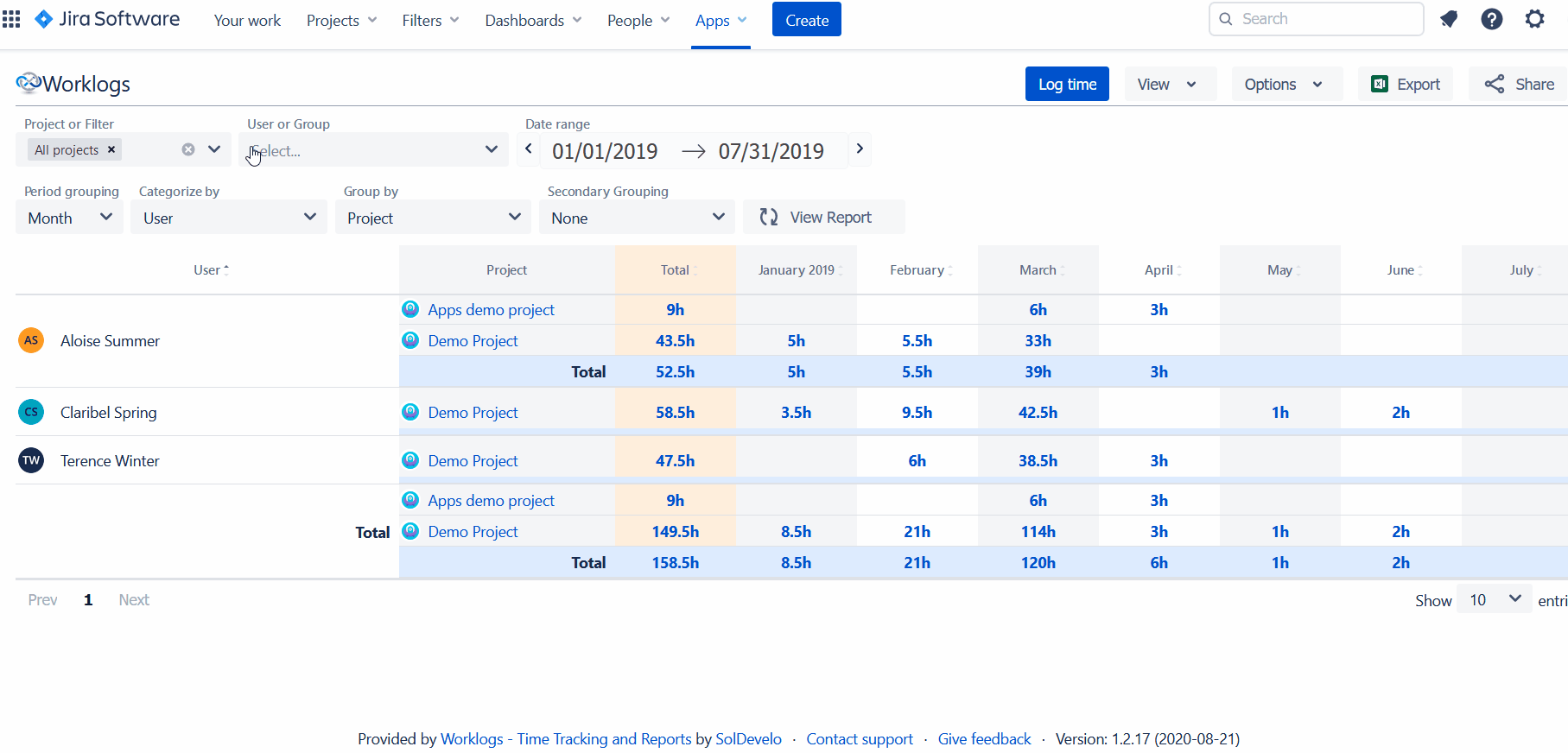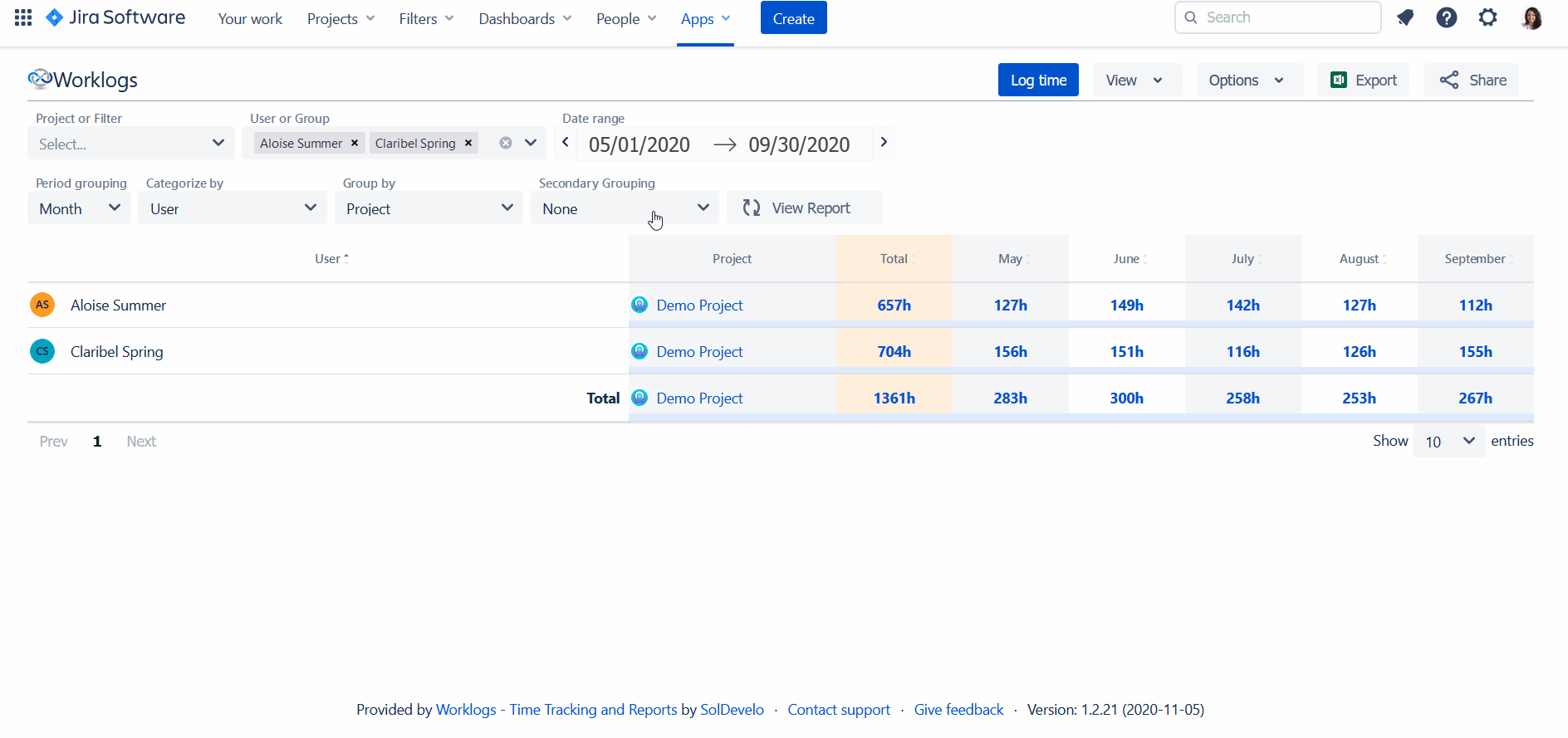Why estimating work time is crucial
Estimating time for projects or tasks precisely helps us to plan and analyze our work. However, it is quite easy to make a mistake in creating clear timelines and managing yours and your team’s workload. It happens because people often underestimate the amount of time needed to get the job done, especially when they’re not familiar with the work that needs to be done. They are either too pessimistic, and they give themselves more time than they really need or too optimistic, thinking they’ll finish their work faster. In case of the latter, they may not take into account unexpected events or urgent high priority work – thus, they may fail to stick to the deadline. This may obviously have serious negative consequences further down the line.
No matter which type of mistake you make in estimating the time needed for completing your work, poor time estimates will surely disrupt your schedule and lower the quality of your efforts. For some clients, the outcome of your project may even be perceived as a failure if you violate the estimated deadline. Only if you know how long your tasks take, you can satisfy your clients and – equally important – manage the expectations of your team. You can tell everyone when the work will be done and in this way, motivate your people to work harder and faster, and deliver projects on time. It all shows clearly that setting precise time estimates and not being overwhelmed with the amount of work is crucial for effectively leading your team and achieving business success.
Tracking time in IT project management
Tracking time is extremely important also in case of agile software development projects.
In fact, for software developers, it is one of the most difficult aspects of the job. It requires taking into account a few factors that help product owners make decisions that affect the entire team. If you want to correctly calculate the time and material costs of the project, not lose money and time during its implementation, you need to know how much time and how much effort is required to be put into it. This, in turn, will allow calculating more realistic deadlines, stay focused on where you are going and see the course of product development clearly.
Thanks to time tracking in IT project management, you can save yourself and your team from overcharging your workload as well as provide work transparency – because then it is possible to check what your colleagues have worked on recently. It is important to mention that time tracking can be now fully automated by using apps – this allows the users to get on with their work without any interruption of manual input. One can customize the estimation statistics they use (story points, time, or issue count) and the time tracking settings to suit their needs and track work in their project.
Is Jira the solution?
We know for sure that time tracking allows every agile development team to record the time they spend working on issues. The good news is that it is enabled by default in Jira. All you need to do is to grant the required permissions to the individual users of the project. This is usually done by the Jira project administrator.
However, the time-tracking possibilities given by Jira seem to really be limited. Although Jira does provide some visibility into the work logs for a particular issue, you cannot easily retrieve information on how much of that time was logged by a particular user. You can log your work only on each Issue tab and there isn’t a separate page where you can collectively manage your worklogs. Besides, there isn’t a dedicated page where you could check the summary of others logged times. There are only basic reporting features that do not provide enough information to a manager who is simply not able to review the team’s engagement and efficiency in a sprint.
The fact that Jira is not so user-friendly for the employees nor for the employer in terms of time-tracking, results in many time tracking applications to be found in the Atlassian Marketplace. As the options available only with Jira may not seem enough, it is necessary to extend them with a useful add-on. Worklogs – Time Tracking and Reports by SolDevelo is a great example!
Estimating made easier thanks to Worklogs
Worklogs – Time Tracking and Reports is a useful tool that allows for easy and intuitive tracking of logged work in your company or organization – all of this in order to track time spent on a particular task or a project in a given period of time. It gives immediate feedback to a team manager, pointing out the issues that have taken a lot of time as well as those that have been completed much faster. The collected data can be grouped by days, weeks, months, or years (depending on what you choose) spent either by yourself or by other members of your team. You can also categorize entries by projects and use several filtering options. The display of hours can be grouped and displayed by many options in order to create different reports. This data can be viewed in Jira or exported in Excel format. Sounds satisfying enough? It surely does!

Viewing all logged time with Worklogs
Let’s start with important information: Worklogs can be accessed through both a menu item or inserted into your dashboard as a gadget. Easily customizable and configurable, the add-on meets users’ different needs, especially while working on multiple projects!
How to get down to it? Firstly, after you install the add-on to your dashboard, you’ll see the table displaying on the main page. The table contains a summary of the logged time of you and other members of your team in the set period of time. If you want to create the summary in .xlsx format, you just use the “Export” button. Its title is automatically filled with the previously set worklogs’ period.

On the main screen, by default, you will see the time logged by all the members of all the projects in which you participate. You can categorize and group the data by time estimation, sprint, priority, status, issue type, component, and many others.
Grouping is just one option, there is also a possibility of filtering the data that comes in handy. When using the appropriate filters, you can easily get the complete record of the chosen teammates’ worklogs. What’s especially satisfying is that all the filters adjust to the period of time that you pick. You can limit your time frames to just one day, search for hours logged from the start of a project, or simply look at any other scope that works best for you. The choice is yours!
Apart from the option to filter data by the combination of date range, projects, users, or groups, you can simply use Jira filters. The latter can be personalized and adapted according to your individual needs. Jira filters help you to craft your own overview of issues that you want to track along with the time spent on them. Important note: you can combine the filters together and display the worklogs for the given time period and for the chosen users – or just for yourself!
Sounds interesting, doesn’t it? To top it up, let me just mention that Worklogs – Time Tracking and Reports offers one more useful feature to help you optimize your work even better: it is the possibility to preview the issues you logged time into, only by clicking on the appropriate number of hours logged. How good is that?
![]()
The solution at hand
There’s no doubt that keeping a time log provides you with valuable data about the necessary hours (or days, weeks, etc.) required to complete your work. This, in turn, allows you to estimate future work more precisely. Worklogs – Time Tracking and Reports by SolDevelo is just the right tool to track your teams’ worklogs and the time spent on a project. Why? It will help you in introducing improvements to your organization and enhance the accuracy of your team’s estimations. And as such, it’s probably one of the fastest and most effective ways to identify activities that you often simply waste your time on.











